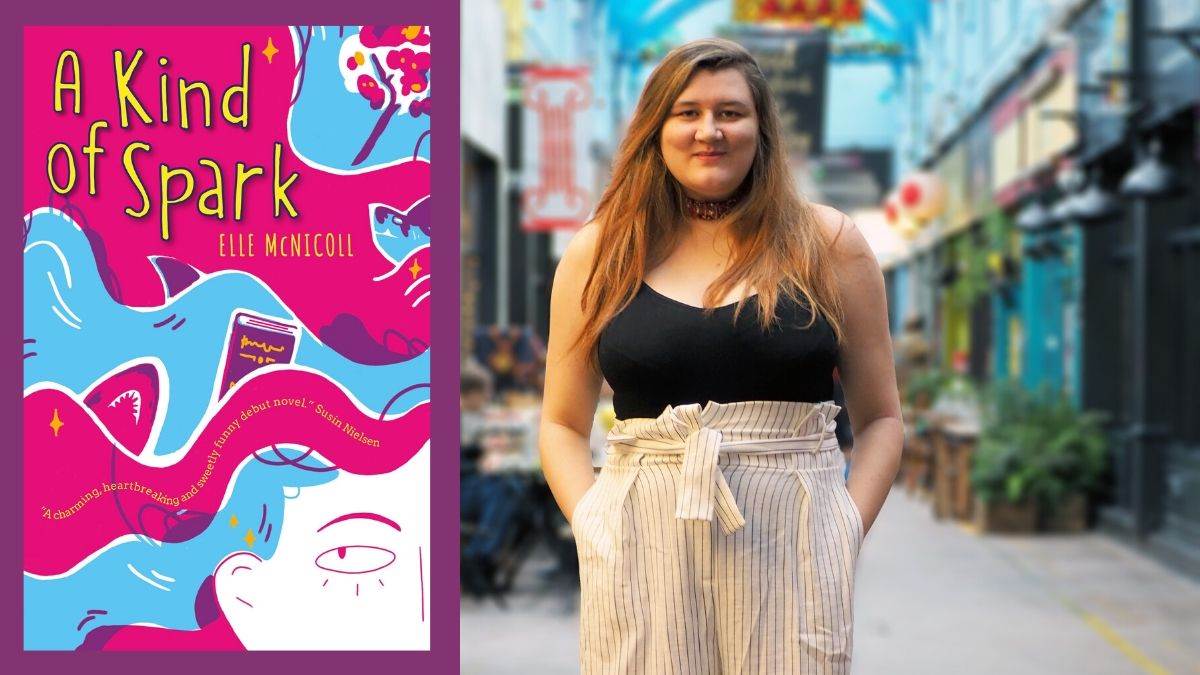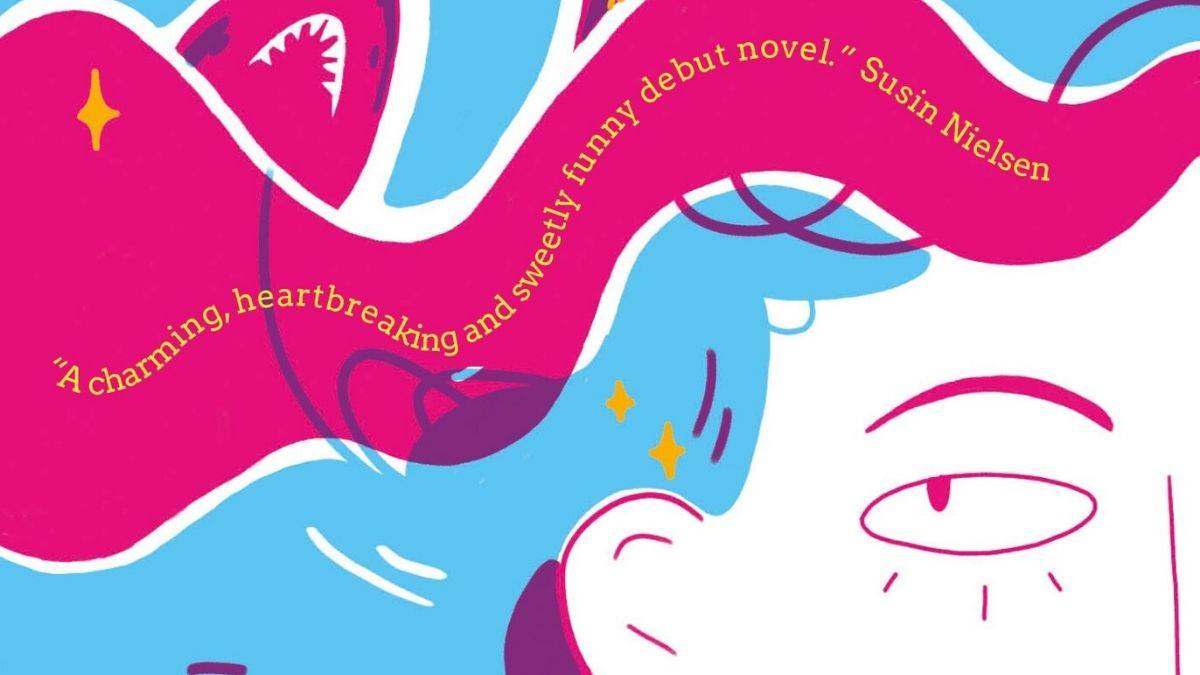"I write about anything and everything, but I always write about neurodiversity": Elle McNicoll on being a neurodivergent author
Published on: 06 July 2020
 Author Elle McNicoll and the cover of her book, A Kind of Spark
Author Elle McNicoll and the cover of her book, A Kind of Spark
“I don’t even know what ‘neurodivergent’ means.”
I’m very used to this response when I’m trying to discuss neurodiversity in publishing. There is no fault in it. Neurodivergent is a relatively new term, and not often heard in the mainstream. It’s a catchall term for people with neurological differences. Autism, dyspraxia, learning difficulties, ADHD, Tourette’s Syndrome, dyslexia, etc. It’s a great word! It allows people to quietly establish that they are disabled and not neurotypical, without necessarily having to be fully vulnerable about their diagnosis.
The reason I use it? I know what terrible stories people are telling themselves when they hear ‘autistic’ or ‘learning difficulties’. I just do. After twenty years, I just know. So, I like to start on a completely new, blank page.
People might be scoffing right now, saying that there is no shame in being autistic or having a learning difficulty. And to that I say, of course there isn’t. No one says that more than I. My entire career is built around saying that, over and over again. But when you’ve lived on the other end of having to reveal your diagnosis, in both professional and personal settings, you quickly become an expert in just how terrible most people’s views and perspectives about these matters really are.
I’m a writer. I’m a neurodivergent author. I write about anything and everything, but I always write about neurodiversity. Because my entire childhood was one, large, never ending, neurotypical catalogue of books. Brilliant books. Exciting books. But books where children like me were hidden away. On the incredibly rare occasion where a neurodivergent child would make an appearance, they were usually a burden or something to fear.
And never the hero.
I’ve spent the last couple of years in many publishing rooms, prepared with data and case studies to showcase why the industry needs to publish more Own Voices children’s books in regards to neurodiversity.
"Every child deserves to see themselves reflected positively in stories."
I can tell you that it’s important purely on principle. That every child deserves to see themselves reflected positively in stories. I can tell you that inclusive children’s books encourage empathy and understanding. I can tell you that ableism against the Neurodivergent population has resulted in a low employment rate, staggering mental health issues, professional and social environments that are inaccessible, abuse, incarceration and even death.
I have all of that data. All of the statistics. The empty promises from the establishment, the damning reports.
But none of that gets into people’s understanding like a story does.
A Kind of Spark
My debut middle grade novel, A Kind of Spark, tells the story of eleven-year-old Addie. She’s bright. She’s courageous. She’s loving. And she’s autistic. The story revolves around Addie’s relationships with her close family as well as her personal crusade to get her small, narrow-minded Scottish village to agree to commission a memorial in honour of all the women they executed for being witches, centuries earlier. Addie must work twice as hard as everyone else in her life to be heard, but she fights hard to do it. Her neurodiversity is intrinsically linked with who she is as a person. It’s not some separate aspect of her being. She has complete agency.
And I’ve been overwhelmed by how people have responded to her.
 Illustration from A Kind of Spark by Elle McNicoll
Illustration from A Kind of Spark by Elle McNicoll
I’ve had people tell me that they would have received their autism diagnosis sooner if they had read my book. People whose children don’t normally love to read have read it in one sitting. Librarians, teachers and parents have got in touch to say that this has given them a whole new insight into the ND children in their lives. I’ve seen ND and NT people alike commit to more action for neurodiversity representation in the world, and it has been breath-taking.
"The power of a story has achieved everything I could ever have dreamed of."
People always ask if Addie is based on me. Interview questions often revolve around working out which aspects of the book are autobiographical. And that’s the beauty of Own Voices novels. People can sense authenticity, they can feel the truth staring out from the fiction.
Neurodiversity in publishing is incredibly personal to me. I said as much when I pitched myself and my book to my excellent publishers, Knights Of. I explained how poor representation for autistic children is. I didn’t even have to tell them why Own Voices is so important.
This is not the norm. They are not normal publishers. But then nothing about A Kind of Spark and Addie is normal.
When I look at the finished book, about to enter the mostly neurotypical literary world, I think about every aspect of my life that caused it to exist. The bullying, the torment, the doctors, the therapists, the slurs, the adults who knew I was unable to communicate well enough to speak up for myself…
I think of all of it. Then I think of the beautiful messages I’ve received from autistic readers and reviewers. I think of the children who will pick up this book. A book telling them that they are seen.
I think of all of it. And it was all worth it. All of it.
Elle McNicoll's A Kind of Spark is our Bookmark Book of the Month for July.
Topics: Bookmark, Autistic spectrum conditions, Features





